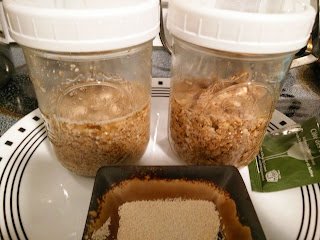Lexicon: Sool & Ju
Korean brewing has its own terminology to describe things specific to the craft. This series of posts, titled "Lexicon", aims to de-mystify this esoteric range of vocabulary, which can be a hurdle for those new to Korean traditional alcohol. Today we are discussing Sool and Ju. Sool 술 Sool or sul, depending on which romanization standard you follow, refers to the wide array of alcoholic beverages, in a very general sense. It can refer to any and all forms of alcohol, domestic and foreign. Although is it a Korean word, it is not specific to traditional Korean brewing and is more of a general vocabulary. For example, beer and wine are types of sool, as are makgeolli, soju, sake, etc. Sool covers everything, and does not connote anything special. Sool also stands alone in a Korean sentence. It is a one-character noun that describes a class of beverage. For an English speaker, the equivalent would be drinks, booze, or just alcohol(ic beverage). Ju 주 Ju is


